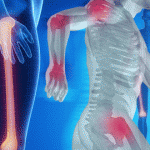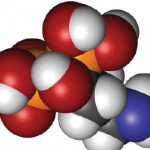NEW YORK (Reuters Health)—Patients can develop rebound-associated vertebral fractures after stopping denosumab, a new report of nine cases shows. All of the patients were considered to be at low risk of fracture, and the fractures occurred within nine to 16 months of their last injection, Dr. Olivier Lamy and colleagues from Lausanne University Hospital in Switzerland…

Proton Pump Inhibitor Use May Be Linked to Bone Mineral Density
The use of proton pump inhibitors may lead to changes in bone mineral density and an increased risk of developing osteoporosis…

Rheumatology Drug Updates: Abaloparatide Promising for Osteoporosis, Plus Secukinumab for Ankylosing Spondylitis
Abaloparatide for Osteoporosis Abaloparatide is completing Phase III clinical trials for the potential treatment of postmenopausal osteoporosis in women who are at an increased risk of fracture.1 Abaloparatide is a synthetic peptide that engages the parathyroid hormone receptor and has favorable bone building activity. Abaloparatide has completed Phase 3 development for use as a daily…

Abaloparatide Promising for Osteoporosis; NICE Draft Guidelines Include Secukinumab for Ankylosing Spondylitis
In a clinical trial, subcutaneous abaloparatide has proved effective in treating postmenopausal women with osteoporosis. Also in the U.K., draft guidelines for treating ankylosing spondylitis will recommend the use of secukinumab…

FDA Approves Updated Labeling on Risk of Osteonecrosis of the Jaw for Denosumab
Denosumab’s labeling now says a patient’s risk of developing osteonecrosis of the jaw may increase with prolonged exposure…
Women on Osteoporosis Drugs Still Need Bone Density Screenings
(Reuters Health)—Women with osteoporosis who take bisphosphonates to help avoid fractures still need to have their bone density monitored, a Canadian study suggests. Researchers who studied more than 6,600 women taking osteoporosis drugs found that for nearly one in five, bone mineral density at the hip actually decreased after the women started taking the medication….
GI Side Effects Leading Reason for Bisphosphonate Nonadherence
NEW YORK (Reuters Health)—Gastrointestinal side effects are the most common reason osteoporotic women cite for nonadherence to oral bisphosphonate therapy, according to a new survey. “Our findings highlight the importance of low tolerability to nonadherence with osteoporosis therapy and underlines patients’ poor awareness and suboptimal physicians’ involvement in conveying the importance of this therapy,” Dr….

The Gut Microbiome Influences Postmenopausal Bone Loss
Bone health has been successfully improved by using probiotics to influence the gut microbiome in postmenopausal women with osteoporosis. New research has gained insight into this process, uncovering that sex steroid depletion increases gut permeability resulting in inflammation and pathology in mice. Treatment with probiotics also prevents this increase in gut permeability and bone loss associated with sex steroid depletion…

Comment Period Open for FDA Draft Guidance on Osteoporosis Treatments; Plus FDA Rejects Abuse-Deterrent Apadaz
The FDA is currently accepting comments on a draft guideline for osteoporosis treatments, which calls for more research into the long-term effects of drugs on bone quality. Also, the FDA has rejected an application for approval of Apadaz in its current form…

New Bisphosphonate Therapy Recommendations for Postmenopausal Osteoporosis
A task force of the American Society for Bone and Mineral Research (ASBMR) has released new recommendations delineating the potential benefits and risks of prolonged therapy with oral and IV bisphosphonate therapy and providing guidance on duration of bisphosphonate therapy for postmenopausal osteoporosis.1 The task force makes clear that data and clinical experience on which…
- « Previous Page
- 1
- …
- 9
- 10
- 11
- 12
- 13
- …
- 19
- Next Page »